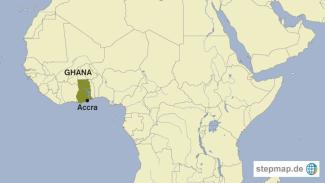Corruption
Brown envelopes

In Ghana, brown envelopes with money are called “soli”, short for “solidarity”. They are supposedly meant to cover travel costs to get to the event. But accepting this money is against professional ethics. In fact, it amounts to corruption.
Ghanaian journalists are divided regarding this issue. Some are against taking soli, others back the practice. “Giving journalists travel money for attending events or press conferences is not a bribe,” says Alhassan Ibrahim, a journalist with over a decade of experience in the northern city of Tamale.
Journalists are not the only people in Ghana taking “travel money” for attending press conferences or meetings. Even ministers and members of parliament are noted to be paid per diems when they participate in events. “These people are well paid. If they take per diems and no one condemns them, why condemn the poor journalist?” Ibrahim asks.
This issue is the heart of the matter: most Ghanaian journalists aren’t well paid. At the private media, one may receive as little as 100 Ghana Cedis a month, that’s the equivalent of $ 23. Others work for more than nine months without being paid. This situation compels most journalists to take brown envelopes. “The financial situation of the colleagues would be worse without the soli. Most media houses would run out of staff,” says Irene, a media practitioner. Kwame Edumoah, a radio show host, agrees: “Our work conditions are not favourable. It is wrong to talk about ethics when most journalists work for months without pay.”
The Ghana Journalists Association (GJA) frowns on the practice, calling it “acts of corruption”. According to the journalists’ code of conduct, taking brown envelopes can affect a journalist’s credibility. Dasmani Laary, a journalist with the Ghana News Agency, says: “Some journalists justify their conduct by saying that ministers and MPs take per diems as well. But theirs is a state policy. In contrast, accepting soli is not a policy condoned by journalistic ethics.”
Nevertheless, most news editors even encourage their reporters to take soli. “In my office, when you return from a press conference, the editor will ask you ‘how much did they give you?’” recounts one journalist. Under these circumstances, it is not likely that the fight against the practice will ever be won.
Maxwell Suuk is a journalist and lives in Northern Ghana.
suuk.max@gmail.com








